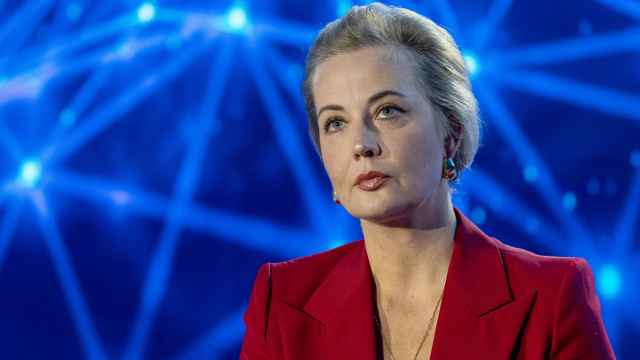East of the European Union, people tend to see the EU as a rich and sophisticated partner, a beacon for a better future and a strategic counterweight. Autocratic rulers in Moscow and Minsk are exceptions, yet they are torn. While tightening membership standards, the EU should improve ties with reforming countries in the East.
Views of the EU and its institutions differ across Europe. British Prime Minister David Cameron says support in his country for the EU is "wafer-thin." In Greece, Italy and Spain, unemployment hovers around 25 percent. The deep recession that has blanketed southern Europe is edging northward. The public sector in France is 57 percent of gross domestic product, helping to make its economy the least competitive in the EU. Poor governance and fractious politics in Italy increase risks. Financial bailouts may not be enough to keep Spain afloat.
East of the divide, the EU picture is brighter. A recent Kosovar-Serbian accord over the Serb-dominated area in Kosovo reflects a powerful EU pull. Estonia and Slovakia are prospering in the eurozone. Lithuania is joining, and the Czech Republic, Latvia and Poland may do so. Ukraine is eager for an EU Association agreement but may lose it if former Prime Minister Yulia Tymoshenko remains jailed as a political prisoner. Georgia strives for closer links and admission to the EU.
Although Russia wants to become a leader of a potential Eurasian union with former Soviet neighbors, it considers itself a European power and aspires to better EU relations and access. The EU is Russia's largest trading partner and energy market, and the source of three-quarters of its foreign direct investment. The Kremlin pleads for visa-free travel to the EU, even though values increasingly diverge. Even Belarus, a target of EU human rights sanctions, wants European investment and improved contacts to offset Russian predominance.
Current difficulties should not obscure the EU's quest for an enlarged European family or underrate the union's staying power. Robust linkages with the East, beyond the anemic and underfunded Eastern Partnership, can encourage civil society and respect for human rights. They might also help the EU resolve some of its own problems. Greater trade and investment with the East would increase competition and opportunity across Europe and Eurasia. This would improve consumer welfare and help expose structural impediments to growth, spurring pressures to lessen them.
Too much haste or rule-of-law compromises with the East would undermine reformers. EU Association agreements must combine economic gain with democratic conditionality. They will reduce undue impediments to private economic activity and assist countries in the East in modernizing laws and regulations to meet higher EU standards and adapt to the single market. Agreements need not imply a potential path to full EU membership. If they did, the EU would hesitate with some important countries, such as Kazakhstan if it democratized.
The East must be realistic. The EU will admit new members only if they are fully and unconditionally ready to assume common objectives and obligations. Bulgaria and Romania, which have per capita GDP that is half of the EU average, entered the union far too soon. Cyprus and Greece are disappointments. Admission should be by merit, whether in the Western Balkans or farther east.
Strengthened EU economic ties will enhance freedom of maneuver in the East, making it harder for Russia or others to exploit monopoly positions in such areas as energy, geography and transport.
Many nations in the East seek Western help in countering Russia, and nearly all pursue Western investment. The Transatlantic Trade and Investment Partnership, which the EU and the U.S. are negotiating, will build confidence, improve economies in the East and strengthen Western ties. U.S. political analyst Zbigniew Brzezinski may have had this in mind recently when he said the partnership would "generate new vitality, more security and greater cohesion in the West."
Temporary crises should not distract Europe from offering strategic reassurance and economic opportunity to democratizing countries in the East. A Europe whole, free and prosperous remains a compelling vision.
Denis Corboy, a visiting senior research fellow at Kings College, London, served as European Commission ambassador to Armenia and Georgia. William Courtney was U.S. ambassador to Kazakhstan and Georgia and special assistant to the president for Russia, Ukraine and Eurasia.
A Message from The Moscow Times:
Dear readers,
We are facing unprecedented challenges. Russia's Prosecutor General's Office has designated The Moscow Times as an "undesirable" organization, criminalizing our work and putting our staff at risk of prosecution. This follows our earlier unjust labeling as a "foreign agent."
These actions are direct attempts to silence independent journalism in Russia. The authorities claim our work "discredits the decisions of the Russian leadership." We see things differently: we strive to provide accurate, unbiased reporting on Russia.
We, the journalists of The Moscow Times, refuse to be silenced. But to continue our work, we need your help.
Your support, no matter how small, makes a world of difference. If you can, please support us monthly starting from just $2. It's quick to set up, and every contribution makes a significant impact.
By supporting The Moscow Times, you're defending open, independent journalism in the face of repression. Thank you for standing with us.
Remind me later.





